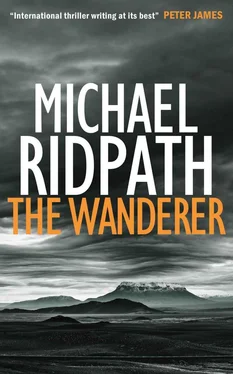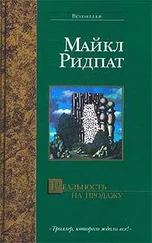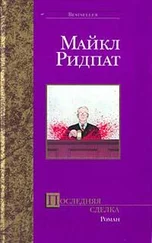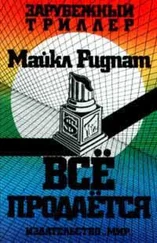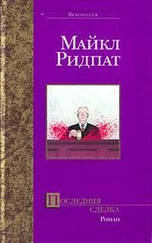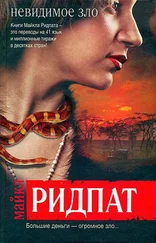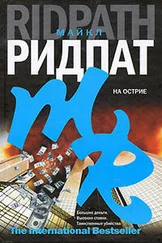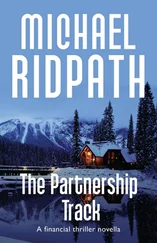‘Well, it’s happened, Tom,’ said Eygló. ‘This little town is crawling with cops. If you hurt me, I’ll tell them and you’ll end up in jail.’
‘No you won’t.’
‘Yes I will.’ Eygló held his eyes. She would tell them if he touched her. And now she knew and he knew he wasn’t going to hurt her.
‘Sit down, Tom.’ She nodded towards the only chair in the room, tucked under a desk.
Tom hesitated, and then pulled out the chair and sat on it.
‘This is going to be really bad for all of us. But the problem isn’t that the hoax has been discovered: that was always going to happen. The problem is that we believed it in the first place. That’s Einar, that’s me, that’s Professor Idiot Beccari. And that’s Suzy. That’s why we’re in this mess. Because we all made a mistake. A big mistake.’
‘I never believed any of it,’ said Tom.
‘Then why didn’t you say anything?’ said Eygló. ‘Why didn’t you tell Suzy what you thought?’
Tom didn’t answer, but he reddened.
‘You can keep up your silent, brooding jungle-man pretence if you want, but then you have to take responsibility for what happens when you don’t speak up. Don’t you?’
Tom’s blush deepened. He breathed in through those flared nostrils. He was listening.
‘Look, I’m really sorry for the mess Suzy is in. I hope she finds a way out of it. But I’m not sorry I tipped off Magnus. It would all be so much worse if this came out when the programmes aired.’
‘If you had only—’
‘No, Tom,’ said Eygló gently. ‘No. They would have uncovered it anyway. Or someone would have done.’
That was too much for Tom. He glared at Eygló, stood up and left the room, slamming the door behind him.
A police car picked up Magnus from his hotel just before eight o’clock the following morning, and drove him down the hill to the police station. It was only about a quarter of a mile, and Magnus would rather have walked.
The sunshine of the previous day had gone, and a low cloud was pressing down on the mountaintops above the little town. But despite the gloom, Qaqortoq had a jolly appearance, certainly much jollier than its Icelandic counterparts. Unlike an Icelandic fishing village with its houses of white and grey concrete or metal siding, the houses here were made of a brightly coloured imported wood: mostly red, but also blue and yellow. A harbour was dominated by the shape of the mighty cruise liner and its almost-as-mighty pet iceberg.
The car drove down to a small square with a silent fountain in its centre and an old low wooden building, similar to the Pakkhúsid in Ólafsvík, guarding the corner next to the water. This, it transpired, was the police station.
Magnus had been awake for a while, emailing Árni and Vigdís in Iceland. They had applied for a warrant to search Rósa’s home and office and seize any computers she might have there; it should be granted that morning. The circumstantial evidence was strong that Rósa was at Glaumbaer when Carlotta had died, but there was as yet no proof that would stand up in court that she had killed her.
The standard of proof required was lower now, because she was no longer alive to be prosecuted and there were no inquests in Iceland, but the police had to be certain that she had indeed killed Carlotta, not least to be sure that Carlotta’s murderer wasn’t still at large.
Magnus wasn’t yet convinced. It was probable they would turn up the evidence to convince him; it would just require patience, thoroughness and a little imagination.
And he was still wondering about Suzy Henshaw.
As for Nancy Fishburn’s murder, the staff at Rósa’s law firm confirmed that she had been in the office all morning, until dashing off for the airport — presumably she had stopped at home to pick up a suitcase, but that needed to be checked. Rósa’s assistant recalled that Rósa had booked the flight to Greenland that morning, just after she had got into the office, and had announced that she was taking a couple of days off at the beginning of the following week.
So, Rósa hadn’t killed Nancy Fishburn. Once again, Einar was looking the best bet for that. The Reykjavík police would interview their neighbours to see if anyone saw Einar leave home that morning early enough to have met Nancy at her hotel.
When Magnus arrived, a meeting was beginning, with Paulsen in charge. Most of the faces around the table were Inuit, with the exception of two Danes, one young, one old. All were in uniform — the police force in Greenland didn’t seem to run to detectives in civilian clothes, so Magnus felt out of place in his jeans. The discussion was in Danish, which Magnus found almost impossible to follow, but the grizzled Danish constable sitting next to him helped with the odd translation into English. At least the legal system wasn’t too different from Iceland’s.
From what Magnus could figure out, Einar hadn’t confessed. Nor were his whereabouts clear for a four-hour period in the late morning, when he claimed he had walked part way to the Blomsterdalen. A Danish tourist had seen him about a kilometre north of the airport on the track towards the Blomsterdalen; that tallied with Einar’s story. No one had seen him on Signal Hill, the hill above the airport. Another witness, a Dane who lived at an isolated summer cabin on the other side of a small lake from the route to the Blomsterdalen, reported seeing a lone figure on the road jump off it to hide behind a bush when a car drove by. The figure was far too far away to be identified, but the witness thought it was a man and that he wasn’t particularly tall. Which Einar was. But then the witness wasn’t absolutely sure.
The police needed better than that.
They had already received Rósa’s phone records from TELE Greenland, which was impressively quick work, and Magnus asked for a copy of them so he could send them to Reykjavík to be cross-referenced with Carlotta and Einar’s records from there.
Three forensics guys from Nuuk were present: they were police officers in uniform with specialist forensics training, but they hadn’t had time to do much the evening before. Constable Frandsen had found the murder weapon, a vicious-looking hunting knife of the kind that could be found in every Greenlandic home, tossed into the brush twenty metres from the body.
Paulsen invited Magnus to deliver a brief report in English on the investigation in Iceland of Carlotta’s and Nancy’s murders, and the possible connection to Rósa’s. But as Magnus spoke, he realized the connections didn’t quite make sense: something was missing. He was beginning to think it would only be when Paulsen persuaded Einar to confess that they would have the true picture.
Paulsen said something rapidly in Danish — Magnus wasn’t quite sure what it was, except that it included the word ‘Beccari’. Then she repeated it in English for his benefit. Professor Beccari had called the police first thing that morning to say he had some information to give them about Rósa. Paulsen had asked him to come into the station at nine-thirty and she invited Magnus to join her for the interview.
Paulsen doled out tasks to the assembled officers, most of which centred on finding witnesses to establish a precise timeline for Einar’s whereabouts during the day. Then she sent them off to the helicopters and Narsarsuaq.
Paulsen wanted Magnus to join her for a briefing with the local prosecutor, but first Professor Beccari was waiting to speak to them.
The professor was sitting in the station’s interview room, staring out of the window at a stall in the fish market by the harbour covered in seal flesh and blood. A gory sight.
‘I wasn’t expecting to see you here,’ he said to Magnus. ‘So there must be a link to Carlotta’s murder.’
Читать дальше
